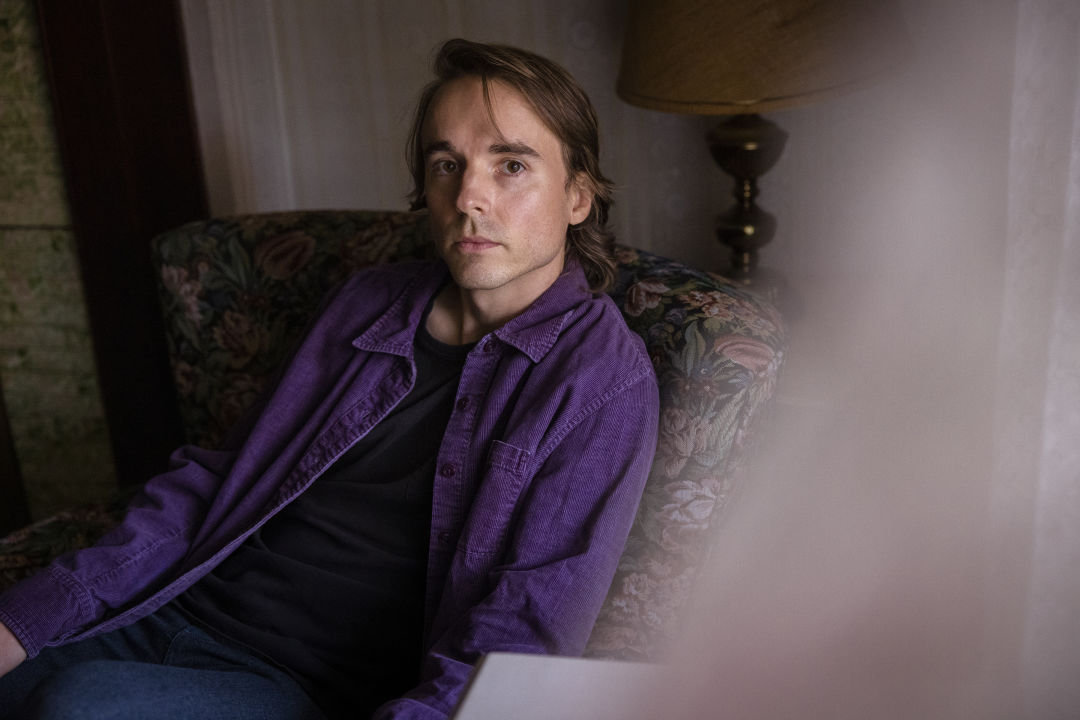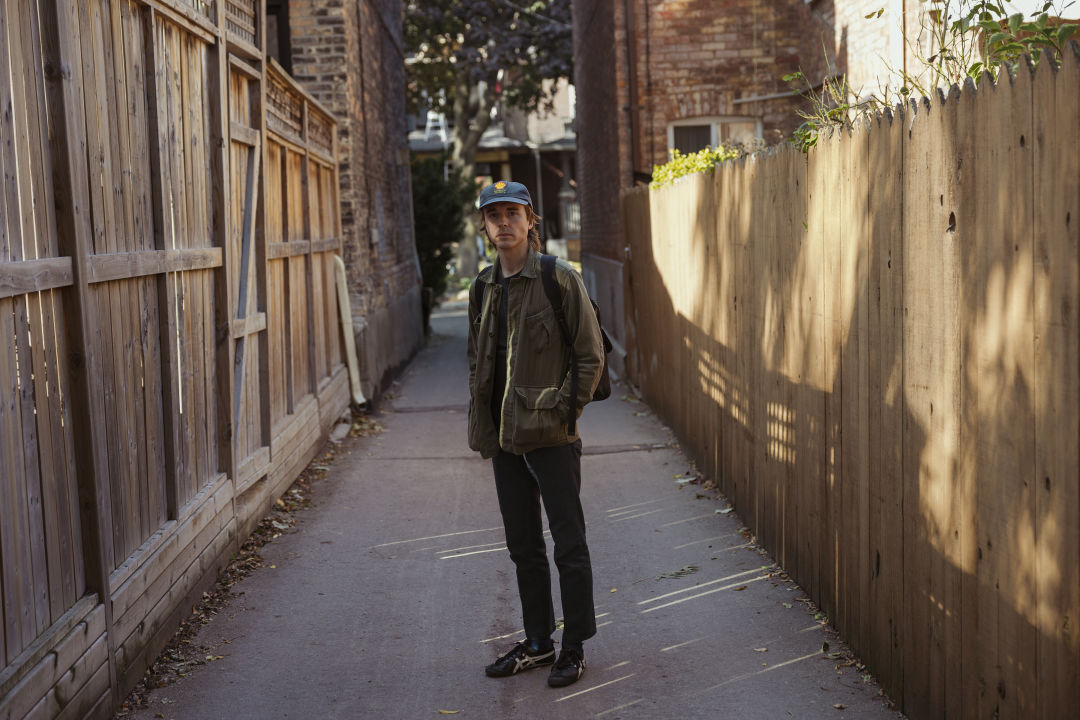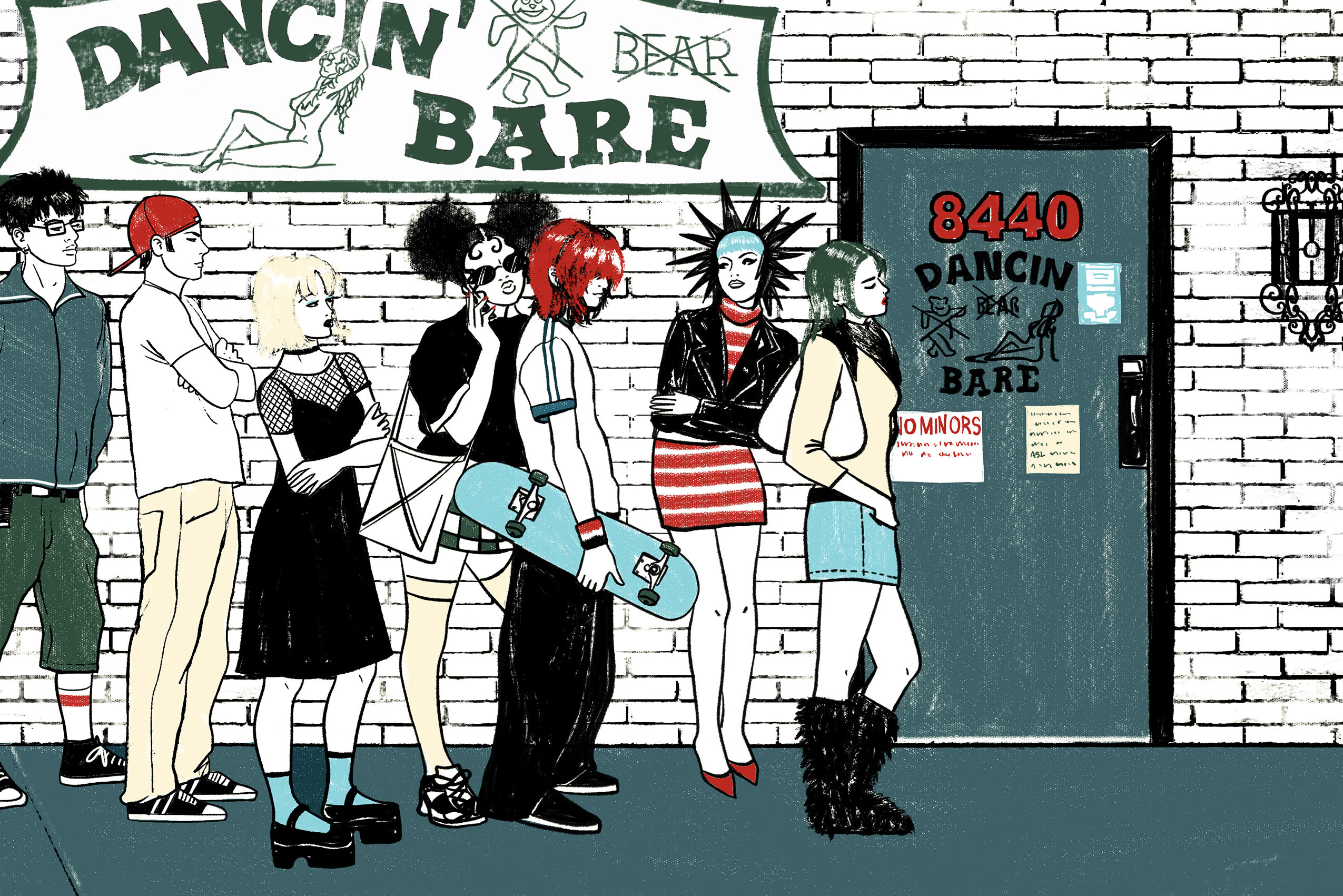Andy Shauf on His Latest Record, Cartoon God, Skimming Headlines, and Leaning into Pop Music

Andy Shauf
Image: Courtesy ANTI-/Angela Lewis
God, Jesus, and a generically named stalker, Norm, make up most of the cast of Toronto-based singer-songwriter Andy Shauf’s latest album. Thematically, Norm (released February 10) is a sharp contrast to Shauf’s previous albums, which have also been narrative-driven but centered on nuanced characters from life, like an ex, Judy, and his friend, Charlie.
“The story didn’t really come together until the very last minute,” says Shauf. He’s calling from a tour bus driving through Little Rock, Arkansas, that will eventually land at Revolution Hall March 7. “At a certain point, I was writing the songs and I realized that they could be linked as a narrative. And it kind of just felt like it was halfway there—might as well tie it all together.”
This isn’t the first literary concept album Shauf has fallen into. His 2016 album, The Party, functions like a complex short story, told from different perspectives of a 20-something house party; The Neon Skyline, his 2020 follow-up, is about time spent drinking at a bar called the Skyline. These stories pull on you like Sheila Heti or Karl Ove Knausgård’s autofiction. They’re cinematic, laced with telling details and personality-capturing notes. With sparse words, whole worlds are built and filled with fully realized characters. Everyone wants to know about Judy.
These previous records are more about capturing emotions than landing on any specific takeaways. By contrast, Norm is takes a philosophical angle; Shauf told Stereogum in a recent interview that the theme of the record is “What if God doesn’t understand what love is?”
Shauf mentions watching David Lynch’s Mulholland Drive while writing the songs for this record. And, like Lynch’s, Shauf’s fans have been obsessed with sorting out the album’s plot since it came out. Unlike Lynch, who is famously enigmatic, Shauf has been kind enough to clear things up for listeners.
In the Stereogum interview he unpacks the narrative track by track. (Shauf says of that interview: “I just said exactly what happens.”)

Shauf's latest album, Norm, was released February 10.
Image: Courtesy ANTI-
Norm also marks a turning point sonically. “With Neon Skyline, I was trying to make a record that sounded like a ’60s folk record,” he says. Critics like to place him somewhere between Harry Nilsson and Elliott Smith. Eventually he felt boxed in; things got formulaic. Everything had to be “written on guitar with verses and choruses,” he says.
Like many of his indie rock peers, Shauf plays most of the instruments on his records himself. He plays the clarinet but brings in help for string sections. That said, he’s not going for a bedroom rock sound.
“There’re a lot of different types of indie rock, or indie music, but it just seems like there’s this tendency to be looking backward”—obsessing over vintage tones, the Beatles, analog everything—“and there really isn’t that in pop music,” says Shauf.
“On this record, I just didn’t want to be looking backward, and I didn’t want to be limiting myself with the types of gear that I use.”
A window opens and a turn signal clicks. Shauf mentions he was listening to Tyler, the Creator’s records while working on Norm. “They’re huge-sounding records, and the textures are like, vivid,” he says. So, he looked into who mixed them and asked his “label guy” to see if they could get in touch.
Turns out, Neal Pogue, who has mixed everything from TLC’s “Waterfalls” to several OutKast records to Steve Lacy and Janelle Monáe’s latest releases was behind the sound. Pogue eventually signed on to mix the record.
Working with Pogue was a nice way to leave behind some of the pretentions of indie rock, Shauf says, and just make an album that sounded “clear and good.”
“You know, use the current things that you’re able to use,” he says, enunciating “computers” and “digital synthesizers” sardonically, like they’re some ominous new technology.
The shift goes deeper than production though. To shake away from Neon Skyline’s guitar-driven verses and choruses, he brought a piano into his studio during the pandemic. He also leaned into synths on this record, which aren’t new to his music, but have only been supplemental to guitar and vocal melodies in the past; here, those textures are leading songs, some of which don’t have much in the way of guitar parts at all.
Critics are also noting his expanding vocal range; Shauf shrugs it off and mentions he quit smoking a few years back. He also quit drinking while making this record.

“There’s a part of me, obviously, that would be frustrated by somebody thinking that it’s an album about love songs and unrequited love.”
Image: Courtesy ANTI-/Angela Lewis
There is a way to read that as Shauf getting sober and finding God, but he isn’t religious, and that’s not the story of how this record came to be. Biblical allusions aren’t new to the Andy Shauf universe—he grew up going to church and started his career playing in Christian rock bands—but this is by far his most theological record.
“It’s kind of just an aspect of my life that’s going to creep into my writing,” says Shauf. “Probably, someone who didn’t grow up religious wouldn’t cast God as a narrator on his record.”
After writing a few songs from God’s perspective, he says having an omniscient narrator with some sway overseeing things was useful in terms of storytelling: more of a vehicle and less of a direct engagement with Christianity or the Bible.
A brief synopsis of the album’s plot: Norm is a stalker veiled as a shy guy with a crush ... who follows God. God works to guide him away from his sins but makes a few bad calls along the way, conflicted by his duty to protect his followers. The record is bookended by choruses asking, “Was all of my love / wasted on you?” Everyone feels spited at the end.
“It wasn’t as much about exploring theological questions; it was more utilitarian,” says Shauf. This is an everyday, conversational God more than anyone’s literal, nuanced version of a higher being. “Like a cartoon God,” he adds, hoping that people got that.
Of course, in our Spotify world, not everyone is going to dive in and follow the stories all the way through. Shauf says he’s happy that people listen, regardless of what they take from his music, but there is a façade of normalcy hiding something darker on this album. Which, if you don’t unpack it, might be a little too successfully witty. Seamless production and smooth keyboard and synth lines riding under Shauf’s charmed, sing-song-y verses present as takes on classic love songs.
“There’s a part of me, obviously, that would be frustrated by somebody thinking that it’s an album about love songs and unrequited love,” he says. “But that’s kind of just the world that we’re in. People don’t really pay attention to things, myself included. I read a lot of headlines; I skim a lot of headlines. I don’t fully dive in. I don’t know everything about everything.”
“When I see comments on the internet like ‘This is a really nice love song,’” he says, with a half laugh, “it’s like, please listen a little closer.”
When listening a little closer, as Shauf has outlined, thematically, Norm is about misunderstanding love, about getting it wrong. The naive question to ask from there is, of course, what does getting it right look like?
“There’s really no answer with this record, and I don’t have an answer,” says Shauf. “But I know that these three examples of selfish love are not—not going to let a situation end well.”
“I don’t know that it’s one thing or that it’s a static thing or, I don’t know.... I mean, I think it’s probably about as complicated as the non-cartoon God would be.”
Andy Shauf at Rev Hall | 8 p.m. Tuesday, March 7 $30




